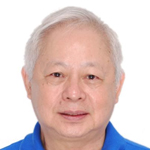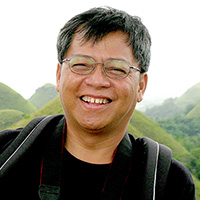 People who were touched by Alex Tizon's prose can adulate over his purported anguish and kindness, but no amount of lachrymose worship will erase the fact that Eudocia Tomas Pulido was worked to death by his family, and she worked libre (for free) for 56 years, and a measly $200 a week after she was moved to Tizon's house.
People who were touched by Alex Tizon's prose can adulate over his purported anguish and kindness, but no amount of lachrymose worship will erase the fact that Eudocia Tomas Pulido was worked to death by his family, and she worked libre (for free) for 56 years, and a measly $200 a week after she was moved to Tizon's house.
Ang dakilang si Alex
Tizon's supporters scrambled to his defense with counter-arguments. Some argue that the confession reveals to us how tormented he was and by writing about Pulido's slavery, he had sought forgiveness for what his parents did while laying out to the readers the many ways in which his siblings and their families tried their best to make up for the brutality heaped on Pulido by their parents. This made Tizon a noble soul; flawed, yes, but noble.
Others have lashed back at critics, especially those writing from the United States and other parts of "the West," accusing them of failing to understand "Filipino culture" and its complicated set of social relationships, ranging from the famed utang na loob (debt of gratitude) to the "exchange" between richer relations and patrons extending assistance to poorer kin and underprivileged clients and, in return, the latter offering them their free or heavily discounted services.
"Westjacking!", "Foreign meddling!", "Orientalism!", "Imperialism!", "Racism!" – so goes the cries of an odd array of actors: the known communist party's front organization Gabriela, American-Filipinos who want to ratchet up the myth that they suffer a similar fate as African-Americans, highbrows of the nation's literati reminding American critics of their own slavery scourge, distraught matriarchs of Manila's elites and middle classes who worry that Tizon may have – in the words of Manolo Quezon – "committed class and cultural treason" by exposing what happens inside their gated communities.
An academic variation of these "nuanced" positions contends that this distinct, very Filipino form of "slavery" is firmly anchored in our history, the practice going as far back as the 16th century. Just check out what the late eminent historian WH Scott said about slavery!
The last of these pitiable rebuttals is to invoke collective guilt. Tizon's exposé of his family's slaveholding ways has compelled us to look deep into ourselves, and admit that we have – in varying degrees and at various times – been nasty to the help. Admission of this sin is the first step towards communal clemency and making us good Filipinos again. It will be a long night, but if we persist, we will attain deliverance.
Eh, teka muna (Wait a minute)...
Of course, there is no sign of action beyond the remorse.
My friend and former colleague, Southeast Asian studies scholar Caroline Hau, has also methodically cut all these "nuanced" assertions to shreds, pointing out the exploitation often hidden in the practice of utang na loob. It is also not about racial identity or being Filipino, as some of my American-Filipino friends argue. It is not about this favored racialized label in American politics, it is about class: the struggling, model-minority Pinoy immigrant in the Tizon slaveholders' saga is also the greater exploiter. Not "the empire," not "white Americans." (READ: 56 years a slave)
For me, the suggestion that the Tizon slaveholders' wrongdoings have old 16th century connections is a lazy argument: it assumes that nothing else has happened and relations have not evolved since then. Should we look at the trafficking of women in Mindanao and Sulu to fill up the brothels in Singapore as 21st century versions of what WH Scott described? That is quite a stretch.
Most important of all, this uncritical reverence of Tizon's sensitive prose actually silences the voices of the Pulido family. Historian Leloy Claudio pointed out how selective Tizon was in the use of the great writing style: full throttle with The Atlantic, but mendacities – often awkwardly explained – to his newspaper and his own colleagues.
Kriminal
Hau and Claudio are nice people and hence more diplomatic. I am not, especially to exploiters and oppressors.
The Tizons committed a crime, and the author was himself a tortured but willing accomplice.
And let me repeat what these slaveholders did to her for 56 years. Eudocia Pulido worked as a slave while being promised compensation and a chance to go home. She slept in the laundry room, something her latter-day overseas-Filipino-worker counterparts still do in places like "modern" Hong Kong and Singapore. Since the children had delicate skin, she substituted in their behalf and absorbed the beatings of their parents. She was never allowed to go out (easy to impose since she was never taught English) and could not escape because she was an illegal.
Piniga.
Only after his parents died did Tizon try to help her recover her humanity: visits to the country she was forced to abandon, garden time, and a $200/week remuneration. But by then it was too late. Pulido had been so brutalized that at that point she knew of no other life save that of a slave. She knew nothing of her home now, most of her siblings were either dead or aging and in her old age what else was there to go back? She had been away for over a century now that she felt alien to and out of place. (READ: Finding Eudocia Pulido in her hometown in Tarlac)
Tizon did continue to struggle with his demons, but we do not know exactly about what, or why. Was it the guilt for not coming to her rescue? For not reporting his parents' slavery to the authorities? Or maybe the reticence to admit to Pulido that for all those 56 years she was nothing but their slave? And that the term "Lola" was merely pampalubag-loob (consolation)? In the meanwhile, the penny-pinching persisted.

And when Pulido died, Tizon, in his own words, brought her ashes back home in a "cheap plastic box" that was "about the size of a toaster." He claims to have teared up a bit while watching Pulido's relatives cry. But it was pilit (forced), for one cannot expect him to join in the mass howling for a "distant" (sic) relative. Besides, why should one cry over a dead slave?
Binarat.
As it turned out, Tizon was not keen on spending time at his "Lola's" place. Here is Pulido's niece Rosita Labador explaining to Rappler's Lian Buan– 46 seconds into the tape – why she missed the burial:
Noong nalaman ko, hindi naman ako nakasunod kaagad. Eh napunta pala sila kina auntie [at] Oyang, eh diretso na pala silang inilagay sa Bliss (the memorial park), sa sementeryo. Ang pagka-alam ko kasi magdamag pa silang anuhin sa bahay. Hindi naman pala – diretso na, kasi siguro apurado 'yung nagdala, pauwi na... si Alex.
(When I learned [that my aunt's ashes were being brought home] I was not able to follow them right away. They went to my auntie and Oyang and then went straight to Bliss, the cemetery. What I was told was that we would have an overnight wake at my aunt's place. Apparently that was not the case – they went straight [to the cemetery] because the one who brought her ashes was probably in a hurry... Alex.)
So much for the undying love.
What I find doubly duplicitous in Tizon's beautiful prose is that he did not only commandeer Pulido's muted voice, he also most likely was selective in his parsing of her supposed replies to make him look good! In the end, it was still his story, with Pulido the silent prop. Tizon, even in death, has maintained control of the narrative and his adoring-yet-guilt-ridden admirers are falling head over heels for it, with oodles and oodles of tears (a lot of the crocodile variety). In the end, it is still his story.
We have to hand it to Tizon – his plan of getting away with the crime and still keeping the public on his side is an excellent strategy that would make Niccolo Machiavelli proud.
"Eh, di ilabas ang suwerte!" (Dely Atay-Atayan)
But if we all agree that it was a crime, then, as the saying goes, crime must pay. But how? One cannot jail dead criminals save in Dante's Hell, but how about monetary reparations – the "back pay" owed Pulido for the 56 years of service? Hard to compute, one said; and besides, can pain be ever measured in monetary terms?
One of the lovely things about millennials is that when given a puzzle, they immediately buckle down to work on it. To the question of how much, a friend referred me to the tweet of the fellow with the alias The Kryptonian Blerd who describes himself as "a future RN who's trying to make the world a better place one melanin-infused tweet at a time." Fascinated with the question of how much Ms Pulido is owed in terms of back pay ("and cost before inflation"), he came out with the figure $3,444,721.92. I hope KB would not mind if I repost it here.
Alas, it is a felony that the family has successfully dodged because the perpetrators and the accomplice are dead; the other Tizons were too young to be charged as co-conspirators; and, the most painful deterrent of all, the Pulidos are too poor, unfamiliar with American law, and unlikely to get a visa from the US consulate to pursue their case.
Hence all we have left is the moral outrage, which is much devalued these days, given how much internet hopping can bring us to the next moral outrage in a week or so.
Well, yes and no. This was what I wrote on my Facebook page: "OK...so now that many of those who recognize that they may have done something similar, albeit in various degrees of brutality, to what the slaveholding Tizon family did to Eudocia Pulido, then the logical next step is to confess these transgressions and bring them to the open. You want cathartic closure, then please, off with the hand wringing and cultural explanations and fess up the sordid acts you did to your maids. I will be happy to be your historian and make sure the UP Library Archives has a list of what you've done."
Kunsensiyahan na lang (Let's just guilt trip)...
But if this never worked with our politicians, why expect the rich and the middle classes to admit that there is some of that slaveholders' blood that Alex Tizon has brought out in the open? (READ: We are all Tizons)
It's back to the trenches. – Rappler.com
Patricio N. Abinales is an overseas Filipino worker, but unlike Eudocia Pulido, his place of work is not a slave plantation, and he receives his wages regularly and on time.



 I laud the philosophical shift the Court has been taking in recognizing the need for greater access to justice for our fellowmen who are cash-challenged, distance-disadvantaged, and information-deprived.
I laud the philosophical shift the Court has been taking in recognizing the need for greater access to justice for our fellowmen who are cash-challenged, distance-disadvantaged, and information-deprived.
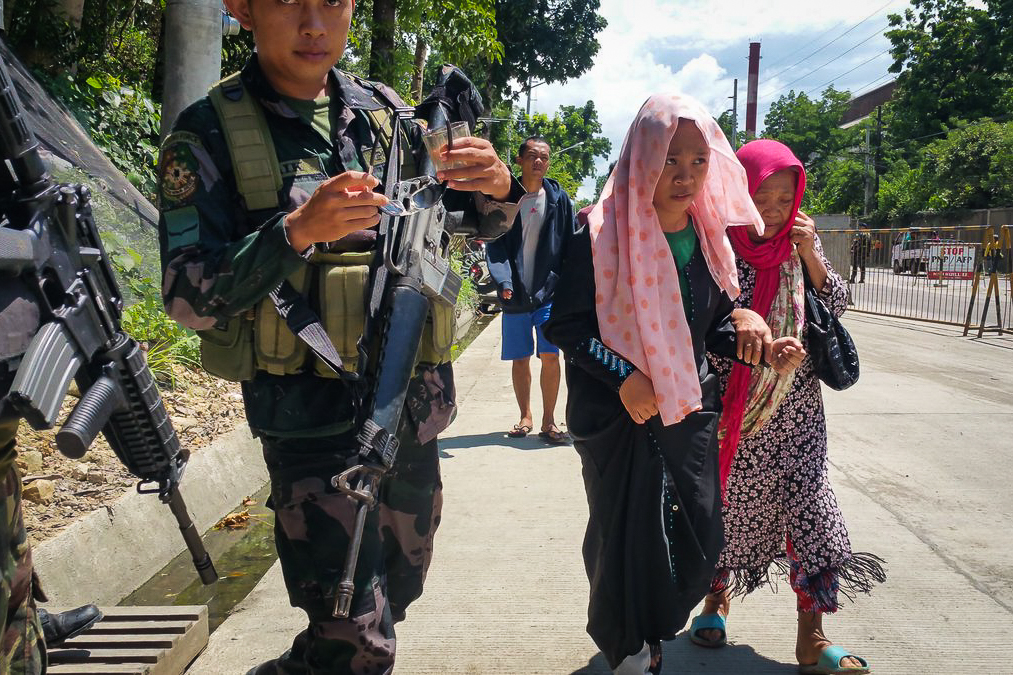



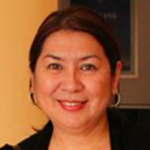
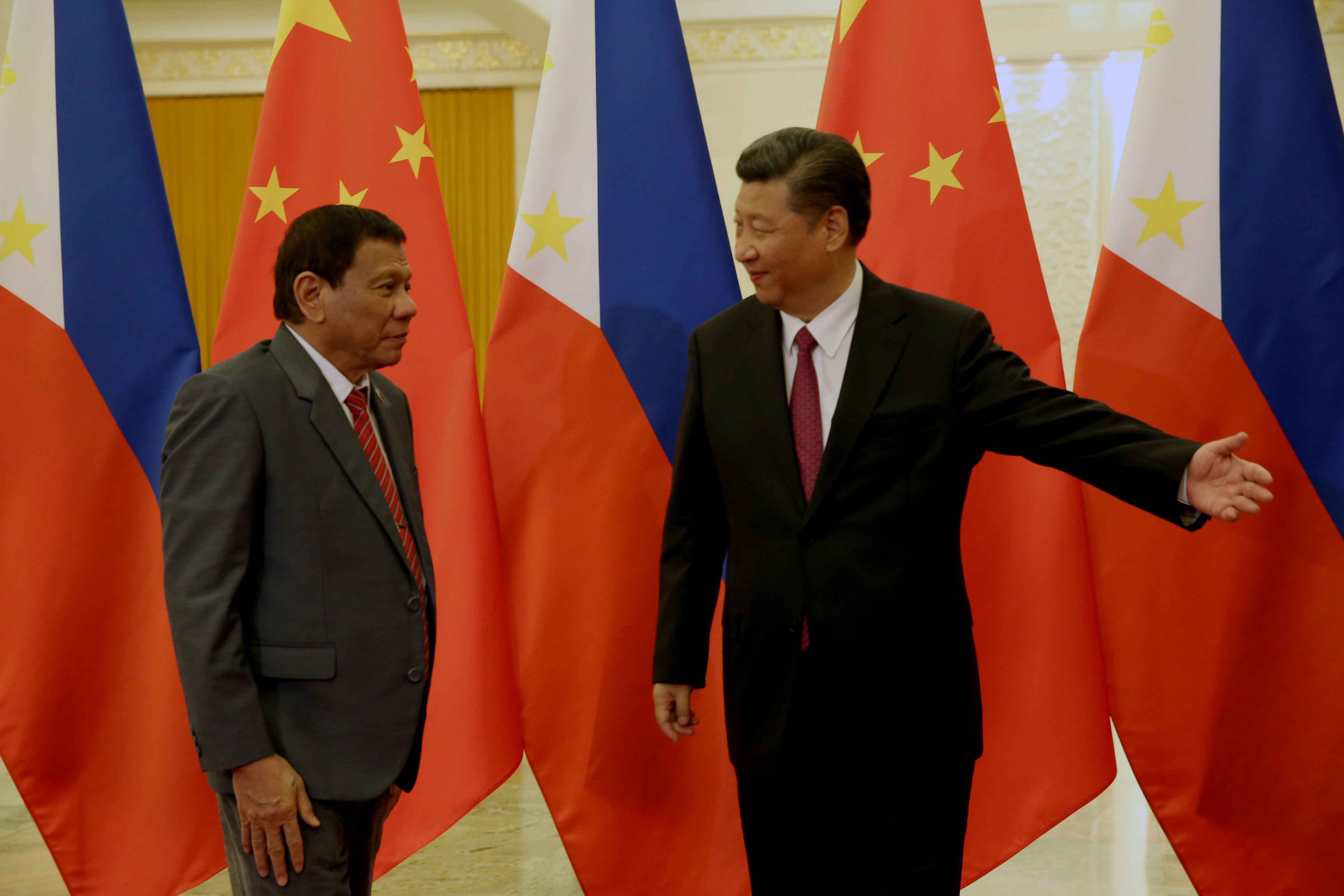
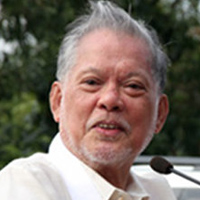 Prez Digong alarmingly and needlessly cut short by a day his trip to Russia and took the mic energetically on arrival for another rambling performance. He talked of martial law (ML) in Mindanao where the vilified Muslims have been persecuted for centuries.
Prez Digong alarmingly and needlessly cut short by a day his trip to Russia and took the mic energetically on arrival for another rambling performance. He talked of martial law (ML) in Mindanao where the vilified Muslims have been persecuted for centuries.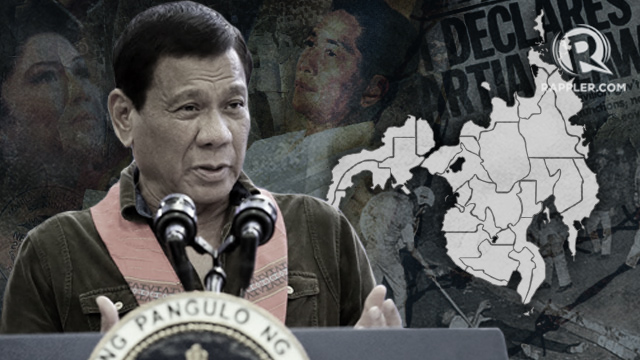



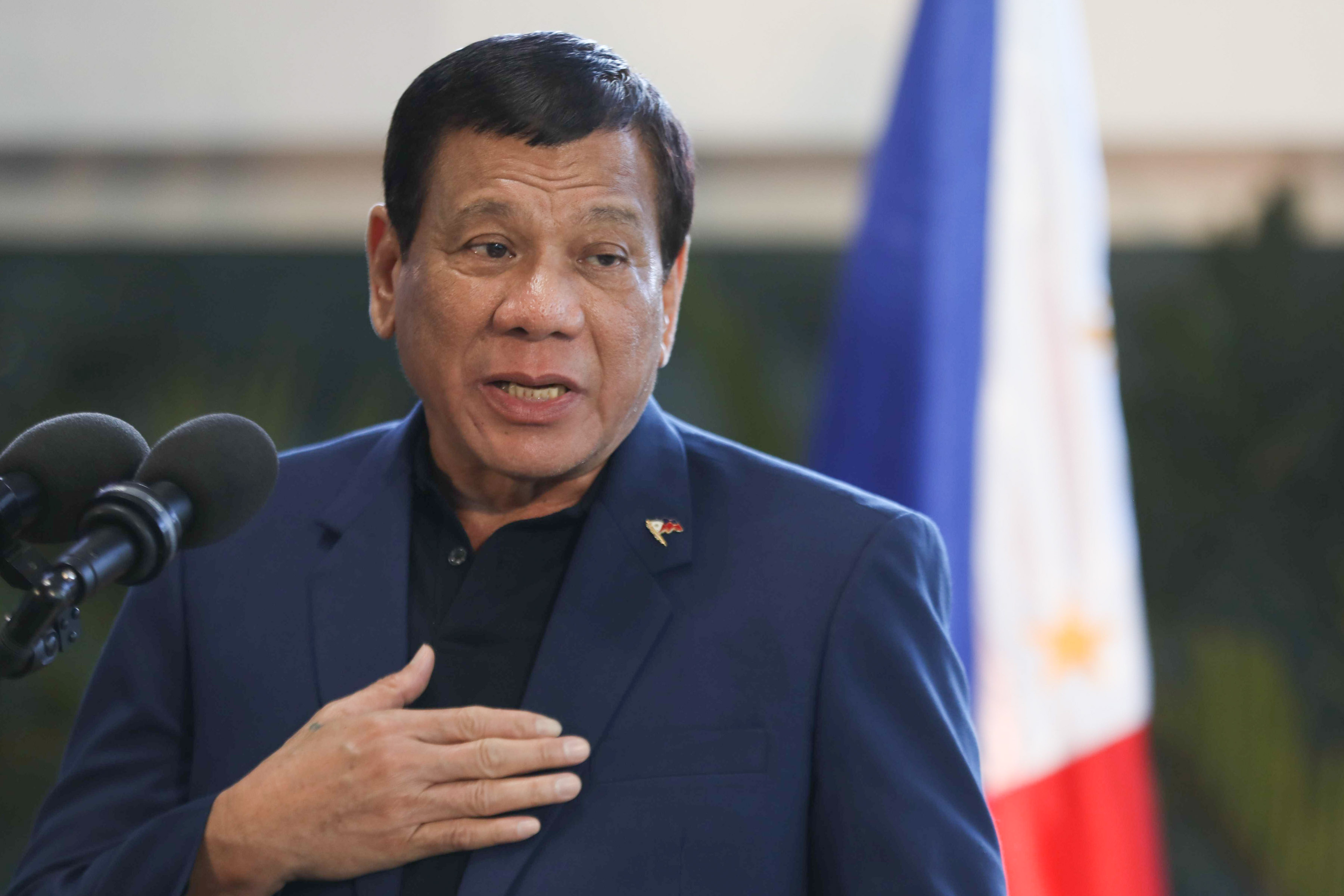

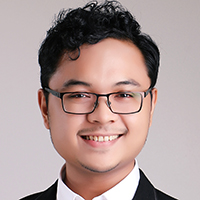 Upon his return from Russia, the President gave a
Upon his return from Russia, the President gave a 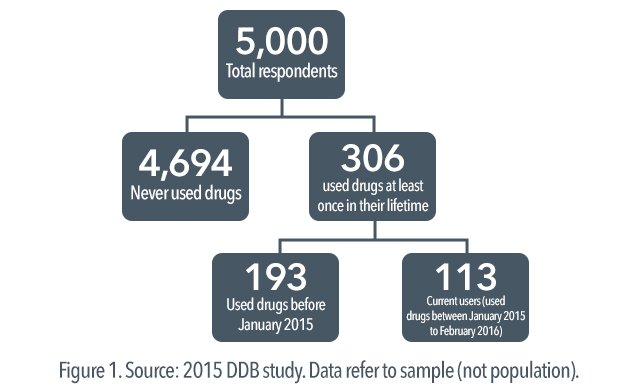
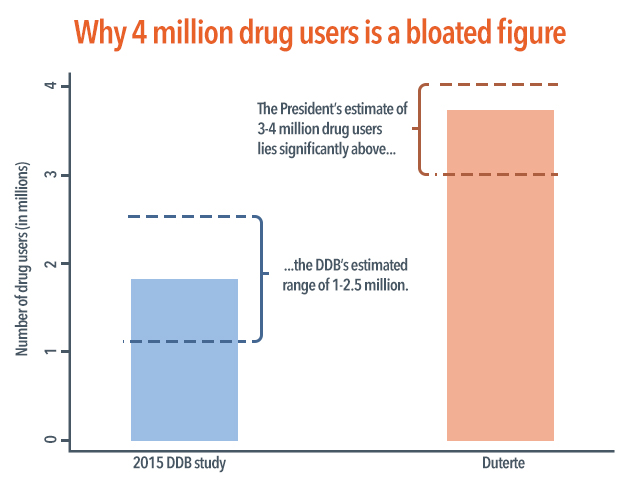
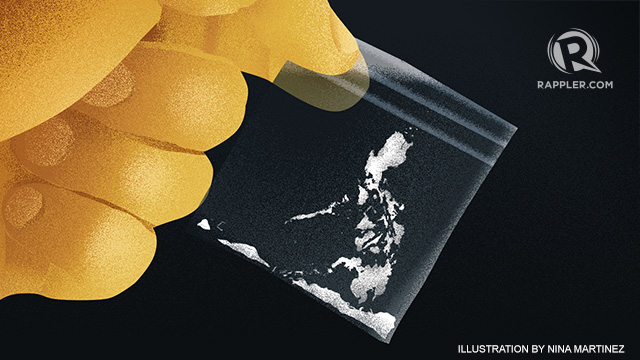
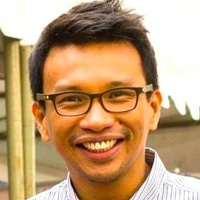

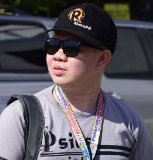

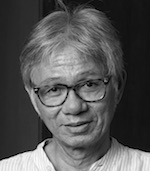 When Rodrigo Duterte warned early in his presidency that he
When Rodrigo Duterte warned early in his presidency that he 
 I was 12 years old when my parents sent us to Dumaguete, my mother's birthplace, to escape an impending attack on Jolo by Moro National Liberation Front (MNLF) fighters. I remember rehearsing for our graduation song and designing our graduation dress for our incoming commencement exercises in March of 1974.
I was 12 years old when my parents sent us to Dumaguete, my mother's birthplace, to escape an impending attack on Jolo by Moro National Liberation Front (MNLF) fighters. I remember rehearsing for our graduation song and designing our graduation dress for our incoming commencement exercises in March of 1974.
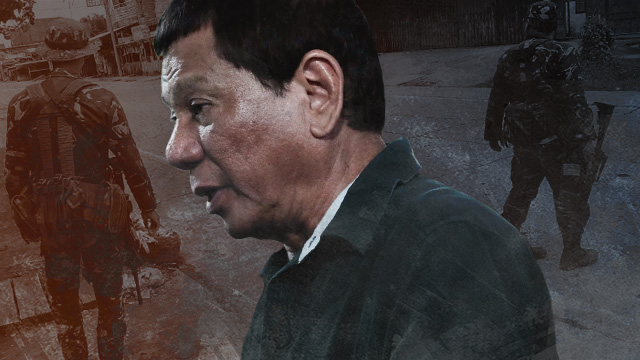
 As a matter of inviolable principle, the Philippines should incorporate in its terms of reference for bilateral talks with China the July 12, 2016, award by the Ad Hoc Arbitral Tribunal constituted under Annex VII of the 1982 UN Convention on the Law of the Sea (Unclos).
As a matter of inviolable principle, the Philippines should incorporate in its terms of reference for bilateral talks with China the July 12, 2016, award by the Ad Hoc Arbitral Tribunal constituted under Annex VII of the 1982 UN Convention on the Law of the Sea (Unclos).
